Submitted by Jeffrey Smith to the French Courts in Support of Prof. Serralini November, 2010
The attack on Professor G. E. Seralini by biotech advocates is just the latest example of denial, distortion, and harassment that has been institutionalized in the promotion of genetically modified organisms (GMOs). A quote from the September 2, 2009 Nature article accurately describes this tactic: A “large block of scientists who denigrate research by other legitimate scientists in a knee-jerk, partisan, emotional way that is not helpful in advancing knowledge and is outside the ideals of scientific inquiry.” Nature says these “strikes . . . launched from within the scientific community” are sometimes “emotional and personal,” and can even “accuse scientists of misconduct.”
Source: responsibletechnology.org
These attacks successfully suppress much needed research and therefore put human health and the environment at risk. According to University of California at Berkeley professor Ignacio Chapela, there is a de facto ban on scientists “asking certain questions and finding certain results.” He says, “It’s very hard for us to publish in this field. People are scared.” Dr. Chapela himself was attacked after publishing his discovery that GM corn contaminated crops in Mexico. It was later revealed that his chief denigrators were two fictitious characters fabricated by Monsanto’s PR firm, who had posted inflammatory remarks on a listserve of scientists.
New Zealand Parliament member Sue Kedgley testified before the 2001 Royal Commission of Inquiry on Genetic Modification: “Personally I have been contacted by telephone and e-mail by a number of scientists who have serious concerns about aspects of the research that is taking place . . . and the increasingly close ties that are developing between science and commerce, but who are convinced that if they express these fears publicly, even at such a Commission. . . or even if they asked the awkward and difficult questions, they will be eased out of their institution.”
Dr. Charles Benbrook, former Executive Director of the Subcommittee of the U.S. House Committee on Agriculture, former Executive Director, Board on Agriculture of the U.S. National Academy of Sciences, said he has personally spoken with “dozens of scientists” who “had to contend with this backlash and these counter attacks that the industry unleashes on scientists that they view as a threat.” He says, “The majority of them get out of the field. The majority of them will not put themselves, or their families, or their career at that kind of risk again.”
Fortunately, Professor Seralini has not left the field. In fact his research is pivotal; it highlights adverse health-related effects from GM plants and the associated herbicide Roundup. Endocrine disruption, toxicity, and immune responses are among the serious findings that deserve extensive follow-up—not curtailment due to unwarranted attacks. Furthermore, because Professor Seralini has identified unreported side-effects in Monsanto’s own studies that previously passed regulatory review, he provides critical insight into the shortcomings of both industry assessments and government approval criteria. I urge the court to protect his work and to establish a precedent that will reverse the dangerous attack strategies widely used to silence scientists.
Examples of Unwarranted Attacks on Scientists
and Interference with Scientific Inquiry into GMOs
Dr. P. M. Bhargava
In February 2008, the Indian Supreme Court asked renowned biologist P. M. Bhargava to evaluate the practices of the Genetic Engineering Approval Committee (GEAC). Dr. Bhargava attended meetings, studied submissions, and consulted more than 600 scientific journals for his analysis. After 10 months he concluded that not only was the Indian approval system inadequate, no GM crop in the world had ever been properly evaluated. In fact, of the 29 different categories of scientific research that he said should be conducted to protect the environment and public health, only 10% had been addressed. But these studies were industry-funded—designed so poorly that Dr. Bhargava deemed them worthless. He asked the Prime Minister and Health Minister to institute an immediate moratorium on GMOs until adequate tests could be completed.
While attending the GEAC, whenever Dr. Bhargava presented adverse findings about GMOs, the material was summarily dismissed with the statement “That’s been discredited.” It didn’t matter what prominent journal or highly credentialed scientist had published the work, the response was automatic. When Dr. Bhargava submitted his own report on the GEAC, they tried to discredit him in the same way.
The GEAC attempted to portray him as anti-government, which was ludicrous. Dr. Bhargava had served on over 100 government committees, including the intelligence committee—where he had unrestricted access to secret government documents. The GEAC also claimed that he had no experience publishing DNA or RNA research. In reality, Dr. Bhargava had published more relevant papers than all the GEAC members combined.
Dr. Arpad Pusztai
Arpad Pusztai was the world’s top researcher in his field of lectin proteins and a senior researcher at the prestigious Rowett Institute in Aberdeen, Scotland. He had been working on a UK government grant to design long-term testing protocols that were intended to become part of the official European GM food safety assessment process. But when Dr. Pusztai fed supposedly harmless GM potatoes to rats, they developed potentially pre-cancerous cell growth, smaller brains, livers, and testicles, partially atrophied livers, and a damaged immune system. Moreover, the results clearly implicated the cause of the problem as the unpredictable side effects arising from the process of genetic engineering itself.
With permission from his director, Dr. Pusztai accepted an invitation to be interviewed on television and expressed his concerns about GM food. For two days he was a hero at his institute. Then two phone calls from the prime minister’s office were allegedly forwarded through the institute’s receptionist to the director. The next morning Dr. Pusztai was told his contract would not be renewed, ending his 35 year career at the Institute. He was silenced with threats of a lawsuit, his 20-member research team was dismantled, and the government abandoned its plans for long-term safety study requirements of GM foods. The Rowett Institute and others issued several statements designed to destroy Dr. Pusztai’s reputation and to protect the reputation of GM foods.
Eventually, Dr. Pusztai was invited to speak before Parliament, his gag order lifted, and his research published in the prestigious Lancet. An in-depth investigation of this incident—including access to leaked documents—shows how pro-biotech scientists and politicians had colluded in their unjustified attack on Dr. Pusztai and his findings.
Dr. Judy Carman
Writing on behalf of the Public Health Association of Australia, epidemiologist Judy Carman condemned the GMO approval process as superficial and inadequate. As a result, she is repeatedly attacked. Pro-GM scientists threatened disciplinary action through her Vice-Chancellor and circulated a defamatory letter to government and university officials.
When Carman was awarded a grant by the Western Australia government to conduct some of the few long-term animal feeding studies on GMOs, biotech advocates wrote letters to the government demanding that the grant be withdrawn. When the government refused, opponents successfully interfered with Carman’s relationship with the university where she was to do the research.
Dr. Terje Traavik
Prominent Norwegian virologist Terje Traavik presented preliminary data at a February 2004 meeting at the UN Biosafety Protocol Conference, showing that:
- Filipinos living next to a GM cornfield developed serious symptoms while the corn was pollinating;
- Genetic material inserted into GM crops transferred to rat organs after a single meal; and
- Key safety assumptions about genetically engineered viruses were overturned, calling into question the safety of using these viruses in vaccines.
The biotech industry mercilessly attacked Dr. Traavik using the pretense that he presented unpublished work. But presentation of preliminary data at professional conferences is a long tradition in science, something that the biotech industry itself relies on. Ironically, three years later, biotech proponents sharply criticized a peer-reviewed publication for not citing unpublished data that had been presented at a conference.
Turkish Scientist (anonymous)
In 2005, a scientist gathered seed samples from all over Turkey to evaluate the extent of contamination by GM varieties. According to the Turkish Daily News, just before her testing was complete, she was reassigned to another department and access to her lab was denied.
Dr. Andrйs Carrasco
Embryologist Andrйs Carrasco is the director of the Laboratory of Molecular Embryology, University of Buenos Aires Medical School and lead researcher of the National Council of Scientific and Technical Research. In 2010, he discovered that Roundup, the herbicide sold in conjunction with most GM crops, could cause defects in the brain, intestines, and hearts of amphibian fetuses. His results supported the reports of peasants who suffered birth defects after being sprayed by Roundup.
The industry responded by ridiculing the research and even threatening him personally. Four men arrived unannounced at his laboratory and were extremely aggressive, attempting to interrogate Carrasco and search his premises. Later, a violent gang prevented Dr. Carrasco from giving a speech on his findings, beat up his colleagues, and attacked Dr. Carrasco’s car for two hours.
Companies Also Prevent Studies by Denying Access to Seeds
In addition to using threats and other attack strategies, the biotech industry has limited independent research by denying scientists access to their patented seeds. For example:
When Ohio State University plant ecologist Allison Snow discovered problematic side effects in GM sunflowers, Pioneer Hi-Bred International and Dow AgroSciences blocked further research by withholding GM seeds and genes. After Marc Lappй and Britt Bailey found significant reductions in cancer-fighting isoflavones in Monsanto’s GM soybeans, the seed seller, Hartz, told them they could no longer provide samples. Research by a plant geneticist at a leading US university was also thwarted when two companies refused him GM corn. When a Japanese scientist wanted to conduct animal feeding studies on the GM soybeans under review in Japan, both the government and the bean’s maker DuPont refused to give him any samples. Hungarian Professor Bela Darvas discovered that Monsanto’s GM corn hurt endangered species in his country. Monsanto immediately shut off his supplies. (Dr. Darvas later gave a speech on his preliminary findings and discovered that a false and incriminating report about his research was circulating. He traced it to a Monsanto public relations employee, who claimed it mysteriously appeared on her desk—so she faxed it out.)
Almost no independent studies are conducted. According to a scathing opinion piece in an August 2009 Scientific American, “Agritech companies have given themselves veto power over the work of independent researchers. . . . Only studies that the seed companies have approved ever see the light of a peer-reviewed journal.”
A group of 24 corn insect scientists protested this restriction in a letter submitted to the Environmental Protection Agency. They warned that the inability to access GM seeds from biotech companies means there can be no truly independent research on the critical questions. The scientists, of course, withheld their identities for fear of reprisals from the companies.
As you can see, Professor Seralini is not alone. He represents scientists around the world who have also faced scathing reactions of biotech promoters. Please defend his rights, and the rights of us all to know the truth about GMOs.
Most sincerely,
Jeffrey M. Smith
Executive Director
Institute for Responsible Technology
Author, Seeds of Deception and Genetic Roulette: The Documented Health Risks of Genetically Engineered Foods





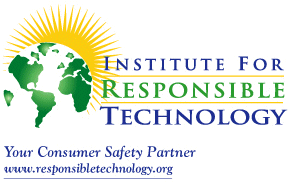
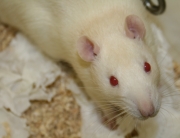

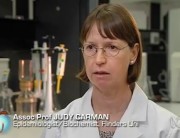














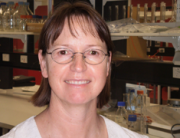

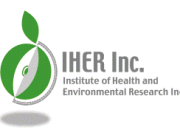










Only attacking scientists because they are lapdogs for the rich. Keep up the REAL research on the dangers of GMO foods. These cowards can’t keep it out of the public’s eye forerver!